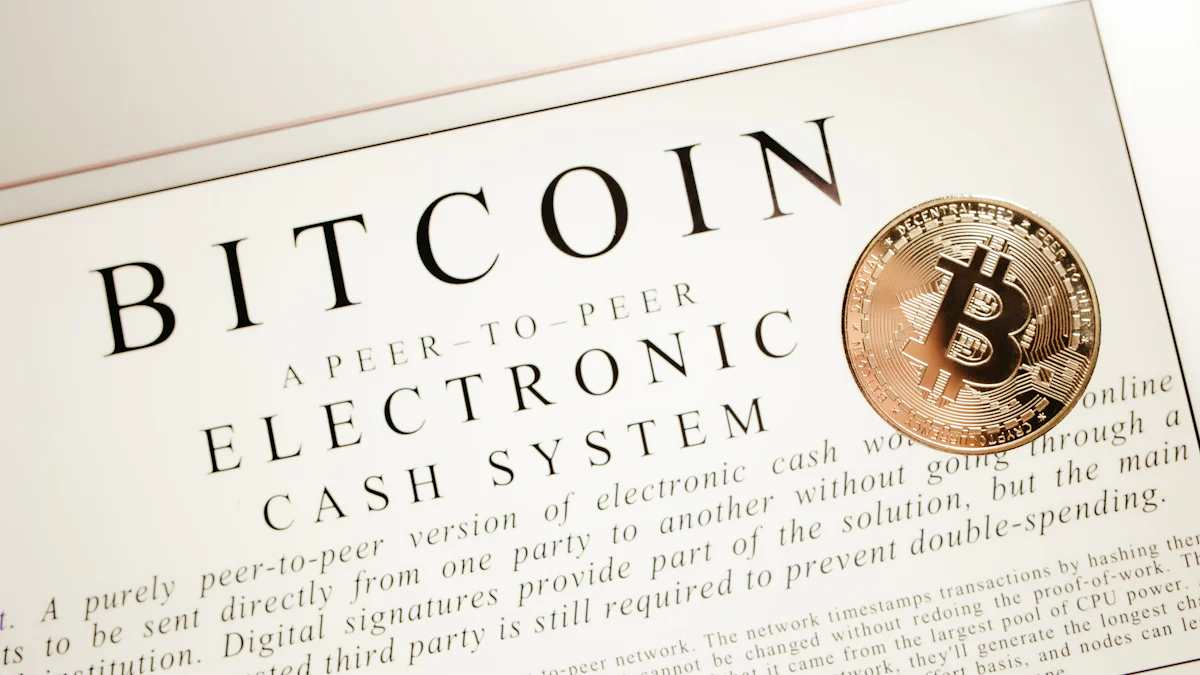The Potential of Decentralized Insurance in a Peer-to-Peer Network
 The Potential of Decentralized Insurance in a Peer-to-Peer Network
The Potential of Decentralized Insurance in a Peer-to-Peer Network
Decentralized Insurance: A Paradigm Shift
Decentralized insurance is on the brink of revolutionizing the insurance industry, offering a transformative shift from traditional centralized models. With its emphasis on distributed networks and blockchain-based technology, decentralized insurance brings forth a host of benefits that have the potential to reshape the way insurance operates. Improved transparency, lower costs, and increased accessibility are just some of the advantages that come with this innovative approach. By leveraging peer-to-peer (P2P) networks, individuals can now engage in direct interactions, bypassing intermediaries and fostering a more efficient and inclusive insurance ecosystem.
Unlocking the Advantages of Decentralized Insurance
Decentralized insurance offers a range of advantages that set it apart from traditional models. One of the key benefits is enhanced transparency, achieved by eliminating intermediaries. In decentralized insurance, participants can directly interact with each other through peer-to-peer (P2P) networks, removing the need for middlemen. This direct interaction fosters trust and allows for greater visibility into the insurance process.
Another advantage is lower costs. By leveraging smart contracts on blockchain-based platforms, administrative costs are significantly reduced. Smart contracts automate various insurance processes, such as claims processing and policy management, streamlining operations and minimizing the need for manual intervention. This not only reduces costs but also speeds up the overall insurance workflow.
In addition to transparency and cost savings, decentralized insurance brings increased accessibility and inclusivity to the forefront. P2P networks enable individuals to directly participate in insurance without relying on traditional insurance providers. This opens up opportunities for underserved communities who may have limited access to conventional insurance services due to geographical or financial barriers. Decentralized insurance empowers these communities by providing them with a platform where they can protect their assets and mitigate risks effectively.
Peer-to-Peer Networks: Transforming the Insurance Landscape
Peer-to-peer (P2P) networks are playing a pivotal role in reshaping the insurance landscape by enabling direct interactions between insurance participants. In a decentralized network, individuals can engage with each other without the need for traditional intermediaries. This direct interaction fosters trust and transparency within the insurance ecosystem.
Trust is established in P2P networks through consensus mechanisms and reputation systems. Consensus mechanisms ensure that all participants agree on the validity of transactions and policies, creating a shared understanding of the insurance terms and conditions. Reputation systems allow individuals to assess the credibility and reliability of other participants based on their past interactions and performance. These trust-building mechanisms help mitigate risks associated with fraudulent activities and enhance overall confidence in decentralized insurance.
By eliminating intermediaries, decentralized insurance empowers participants to negotiate terms and conditions directly. This allows for greater flexibility in designing personalized insurance solutions tailored to individual needs. Participants have more control over their coverage options, premiums, and claims processes, leading to a more customer-centric approach.
Empowering Efficiency and Security: Decentralized Identity Verification and Cloud Storage
Decentralized insurance leverages innovative technologies to enhance efficiency and security in two critical areas: decentralized identity verification and decentralized cloud storage.
Decentralized identity verification ensures privacy and security by allowing individuals to control their personal data. Traditional identity verification processes often involve sharing sensitive information with multiple parties, increasing the risk of data breaches. In contrast, decentralized identity verification utilizes blockchain-based solutions that enable self-sovereign identity. With self-sovereign identity, individuals have ownership over their personal data and can selectively disclose it as needed, reducing the exposure of sensitive information to potential threats.
Similarly, decentralized cloud storage enhances data integrity and availability. Traditional centralized storage systems are vulnerable to data tampering and unauthorized access. In a decentralized insurance model, blockchain-based storage solutions provide an immutable record of transactions and policies, preventing tampering or alteration of stored data. Additionally, these solutions distribute data across a network of nodes, ensuring redundancy and availability even in the face of system failures or attacks.
By incorporating decentralized identity verification and cloud storage into insurance processes, efficiency is improved while maintaining robust security measures.
The Future of Decentralized Insurance: Trends and Regulatory Considerations
As decentralized insurance continues to gain momentum, several emerging trends are shaping its future. One such trend is the integration of the Internet of Things (IoT) for data-driven insurance. By leveraging IoT devices, insurers can collect real-time data on insured assets, enabling more accurate risk assessment and personalized coverage. This data-driven approach enhances underwriting processes and allows for dynamic policy adjustments based on changing circumstances.
Another trend is the evolution of smart contracts to handle complex insurance policies. Smart contracts are self-executing agreements that automatically trigger predefined actions when specific conditions are met. In decentralized insurance, smart contracts can be programmed to handle intricate policy terms, such as multi-party claims or parametric insurance based on external events. This automation streamlines claims processing and reduces the need for manual intervention.
However, alongside these exciting trends, there are regulatory considerations and challenges that need to be addressed. Regulatory frameworks are adapting to accommodate decentralized insurance models, ensuring consumer protection while fostering innovation. Regulators are working towards establishing guidelines that address concerns around fraud prevention, dispute resolution mechanisms, and privacy protection in a decentralized environment.
Additionally, it is crucial to address concerns related to fraud prevention, dispute resolution mechanisms, and consumer protection in decentralized insurance. As this model relies heavily on direct interactions between participants without traditional intermediaries, establishing trust and implementing robust security measures becomes paramount.
Embracing the Decentralized Insurance Revolution
Decentralized insurance presents a revolutionary opportunity for the insurance industry to embrace innovation and transform its practices. With its inherent benefits of increased efficiency, improved transparency, and lower costs, decentralized models have the potential to enhance customer satisfaction and reshape the insurance landscape. As individuals, it is essential to explore the opportunities presented by decentralized insurance and participate in this emerging ecosystem. By embracing decentralized insurance, we can contribute to a more inclusive and accessible insurance market that empowers individuals and fosters trust through peer-to-peer interactions.
